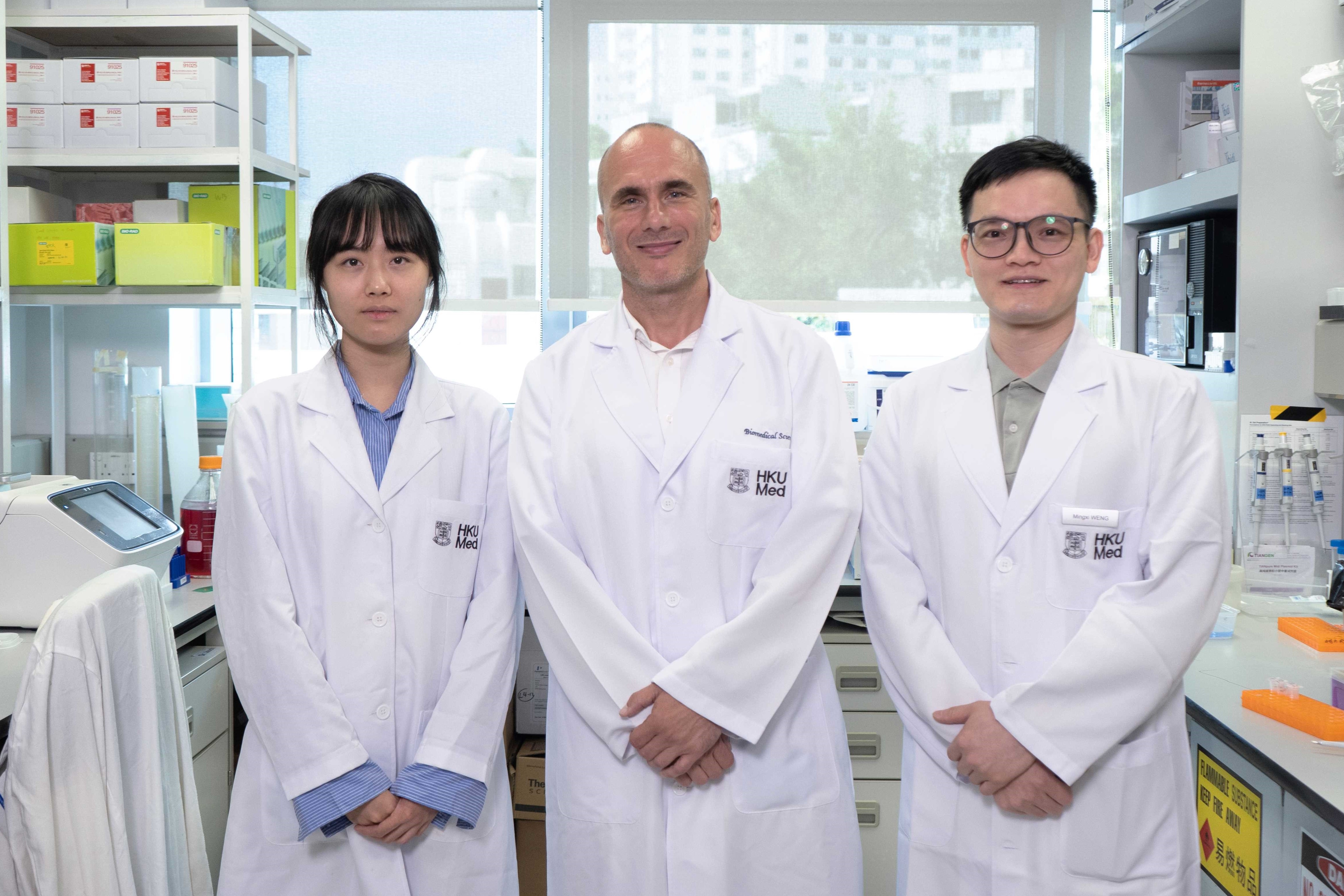07 March 2024
A research team from the School of Biomedical Sciences, LKS Faculty of Medicine of the University of Hong Kong (HKUMed), has achieved a breakthrough in stem cell research, offering tools that can be used for patients who require highly personalised care. The team has developed an innovative method to transform blood and skin cells into neural stem cells, overcoming the limitations of current stem cell research techniques while opening up new possibilities for studying and working towards treatments for age-related diseases, such as Alzheimer's, Parkinson's, and Amyotrophic lateral sclerosis. The findings were published in Science Advances [link to publication] and Nucleic Acids Research [link to the publication].
Background
The human body consists of approximately 200 different cell types, each playing a critical role in maintaining overall health. However, accessing and analysing certain cell types, such as neurons located deep within the brain, have been challenging.
The conventional approach to generating induced pluripotent stem cells (iPS cells) involves using easily accessible cell sources, such as skin, blood, and urine. These iPS cells have similar characteristics to pluripotent stem cells found in early embryos and can be differentiated into various cell types, including those found in the brain, heart, liver, and lungs. However, creating iPS cells is time-consuming, costly, and often associated with safety concerns, since iPS cells have some similarities to cancer cells. In addition, iPS cells represent a young embryonic state, so they are typically unsuitable for studying age-linked diseases. In response to these challenges, Professor Ralf Jauch, Associate Professor, the School of Biomedical Sciences, HKUMed, and his team have been actively exploring innovative solutions to overcome these limitations.
Research methods and findings
Early attempts at inducing neural stem cells were slow and ineffective, relying on natural genes present in the human genome, such as SOX2. The team took advantage of a powerful molecule, called SOX17, which is a distinct relative of SOX2 and typically functions in blood, gut and lung cells. The team transformed SOX17 into a 'super stem cell factor' through mutations. The mutant variant of SOX17 exhibited an improved capability to activate silent genes, self-organise within the nucleus, and navigate from gene to gene with precision, resulting in rapid and efficient cell transformation.
The researchers successfully transformed skin cells from mice of different ages into neural stem cells that possess the characteristics of brain-residing cells. They further refined this methodology for human cells, enabling the conversion of blood cells from human donors into neural stem cells that could be further differentiated into the specific cell types associated with motor neuron diseases or dementia. The team also identified crucial features of the mutant SOX17 and developed a miniSOX variant which reduced the packaging load required for delivery to target cells or organs. This discovery explains the importance of using tailor-made SOX proteins for the successful conversion of skin and blood cells into neural stem cells. A non-provisional patent application on the use of engineered SOX17 has been filed for the development of the next-generation of stem cell models.
Traditional embryonic stem cells and iPS cells often fail to fully capture the characteristics of ageing cells, limiting their utility in studying and addressing age-related diseases. The team has successfully preserved ageing features in stem cells derived from mice, providing a more authentic system for studying age-related diseases and exploring potential treatments. The next phase of their research involves studying neural cells generated from the blood cells of older humans to validate these findings.
Research significance
This groundbreaking research, led by Professor Ralf Jauch, holds promise in the realm of regenerative medicine and personalised patient care. 'The shortcut of generating neural stem cells from easily accessible sources could provide a faster, more cost-effective, and safer way to generate next-generation stem cells, opening the doors to understanding and treating a wide range of diseases associated with ageing,' said Professor Jauch.
'These findings represent a significant milestone in the field of stem cell research. Leveraging the potential of stem cells, we can begin to unlock personalised treatment strategies, tailored to the unique needs of individual patients,' Professor Jauch added.
About the research team
The research was led by Professor Ralf Jauch, Associate Professor in the School of Biomedical Sciences, HKUMed, and principal investigator in the Centre for Translational Stem Cell Biology (CTSCB). The first authors are Dr Weng Mingxi, former post-doctoral fellow in the School of Biomedical Sciences, HKUMed; and Dr Hu Haoqing, PhD graduate from the same School, who continues the research and translation of these findings at CTSCB.
Media enquiries
Please contact LKS Faculty of Medicine of The University of Hong Kong by email (medmedia@hku.hk).


Follow HKUMed